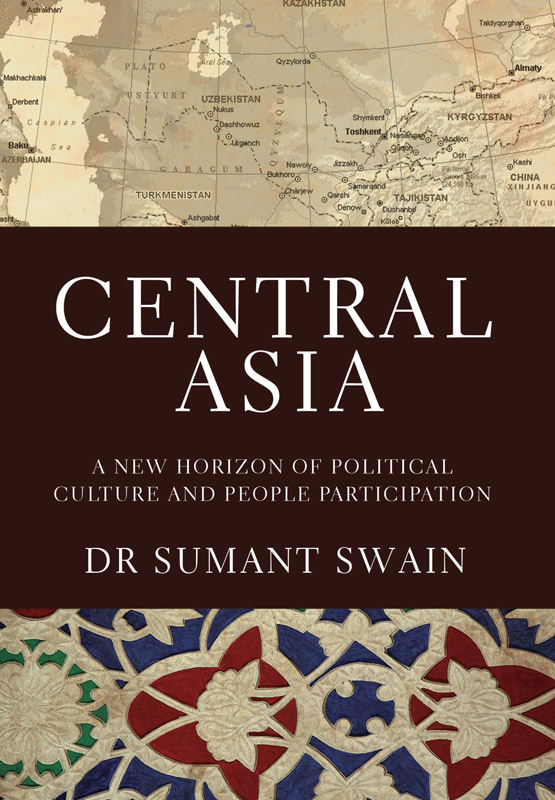The emerging political systems of Central Asian countries have given a new impetus to the world political scientist to add and theorise new democratic developments after the collapse of Communism. This book is a scholarly contribution which combines theory and practice of political culture and participation in the Central Asian political context. This book focuses on the Soviet and Post-Soviet development of political culture in the Central Asian region and the role of political parties, other non-political formations like the opposition, the media, civil society and ethnic minority groups who are also augmenting the process of democratisation. This book has extensively used opinions of experts from authoritative Russian, Central Asian and Indian scholars which were specially undertaken for the purpose of this book. Students, academicians, researchers, policy makers, businessmen and diplomats would be enormously benefited by this book. This book would make its humble contribution to enriching knowledge about the newly politically formed five Central Asian countries’ constitutional provisions and political practices for India’s Central Asia connect policy.
Dr Sumant Swain
Dr. Sumant Kumar Swain is a Deputy Director of Eurasian Foundation, New Delhi. Dr. Swain, a Ph.D from Jawaharlal Nehru University (JNU) was also assigned as an Executive Editor of Eurasian Report and a Former Post Doctoral Fellow at Jawaharlal Nehru University, New Delhi, India. He has expertise in Central Asia and Russian political system, foreign policies and strategic interests, CIS and India energy security, health and development issues. He has edited Contemporary Kazakhstan: The Way Ahead (2009), Contemporary Odisha: Realities and Vision (2011), Naxal Movement: An Ideological Conflict (2011), Clean Energy Options and Nuclear Safety: An Indian Perspective (2012), and Emerging Odisha: Problems and Prospects (2014) alongwith the writing of many research papers. He has visited twice (2007, 2010) the Institute of Oriental Studies under the Russian Academy Of Sciences, Moscow as a Research Fellow in different assignments under the Indo-Russian Cultural Exchange Programme by the Indian Council for Social Science Research (ICSSR), New Delhi. He was also a recipient of the General Fellowship from ICSSR for his study on Indo-Russian Relations: The Issue of Energy Security. He is associated with many social research organisations and government departments for health and social research activities in various capacities. Email: sumanta.swain@gmail.com
Contents
Acknowledgements
Preface
Map of Central Asian Countries
Abbreviations xvii
1. Theoretical Perspectives
1.1. Political Culture
1.1.1. Concept of Political Culture
1.1.2. Dimensions of Political Culture
1.1.3. Types of Political Culture
1.2. Political Participation
1.1.2. Concept of Political Participation
1.1.3. Theories of Political Participation
2. Soviet Legacies
2.1. Origin of Civilisations
2.2. Formation of Statehood
2.3. Women’s Emancipation
2.4. Media
2.5. Gorbachev Period
3. Institutional Developments
3.1. The Executive Branch
3.1.1. Electoral Process
3.1.2 Executive Powers and Functions
3.2. Legislature
3.2.1. Electoral Process
3.3. Political Practice
3.3.1. Executive vs. Legislature
3.3.2. Personality Cult and Authoritarian Tendencies
3.3.3. Kinds of Change: Political Reforms in the Offing
4. Non-State Actors
4.1. Political Parties
4.2. Oppositions
4.3. Civil Societies
4.4. Media
4.5. Ethnic Minorities
4.6. Women
5. Conclusion


 Political Science
Political Science
